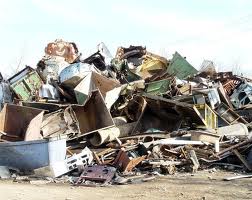
The phrase ‘junk bond’ has been tossed around quite a bit during this financial downturn and it’s worth investigating exactly what people mean by the term. If you were thinking that a junk bond was a sleazy investment like a ponzi scheme, you should keep reading, because that’s not the definition of a junk bond. In fact, you might be invested in some without even knowing it!
First, a Look at Credit Agencies
We need to talk about credit agencies because bonds are deemed as ‘junk’ by their ratings. In the US, there are five major rating agencies: Standard and Poor’s, Moody’s Fitch, Dominion Bond Rating, and A.M. Best. The most popular rating scale used by agencies is the following: AAA, AA, A, BBB, BB, B, CCC, CC, C, and D (bonds in arrears, or missing payments). The AAA companies hold the least amount of risk and are considered to be ‘investment grade’ bonds, along with AA, A BBB. Anything below BB is considered a ‘junk bond.’
*It’s worthwhile to point out that many people have looked down on these credit rating agencies because of inconsistencies in reporting and poor practices. While we could discuss that issue for a while, it won’t change how bonds are rated.
Junk Bonds and High Returns
Junk bonds pay a higher return because they come with more risk. The borrower (the company issuing the bond) needs money from you (the bondholder) but its credit rating is less than superb. Think about your personal finances here. We all get a credit score. If your credit score is good, you get low rates on your auto and home loans. If it’s poor (like companies who issue junk bonds) you’ll end up paying higher rates to borrow money. Historically, the returns on junk bonds have averaged between 4-6%.
Should You Invest in Junk Bonds?
Now that we’ve discovered that junk bonds aren’t a scheme, it’s important to say that you shouldn’t go off to your brokerage and buy up all the junk bonds you can find. First off, it takes a lot of research to find a company issuing high paying bonds that are in line with your risk tolerance and investment objectives. Secondly, you might lose a lot of money if you don’t know what you’re doing. Like any investment, you need to carefully look at the risks and consult a professional adviser.
But if you’re dead set on investing in a junk bond, search for a low fee, high yield bond fund that will spread your exposure to multiple bond funds. Like equities, you don’t want all your eggs in one basket with bonds either.
Hopefully this helps to dispel any confusion you had about junk bonds and their integrity. There’s a time and a place for junk bonds and they can be a valuable investment as long as you maintain a balanced portfolio.
Did you know much about junk bonds before you read this article? If so, what else would you share about junk bonds?
Tim is a personal finance writer at Faith and Finance a Christian financial help blog that provides financial insights for individuals, businesses, and churches. Outside of finance, Tim enjoys spending time with his wife, playing the saxophone, reading economics books, and a good game of RISK or Catan. Find him on Twitter and Facebook and subscribe to the Faith and Finance RSS feed.

Leave a Reply